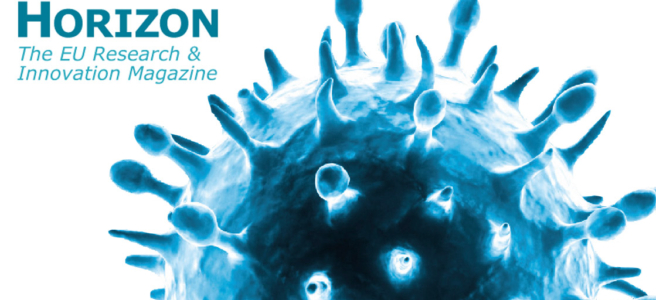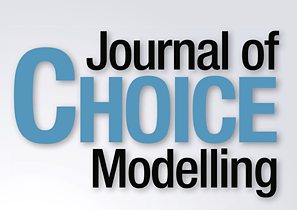Caspar Chorus – Professor of choice behavior modeling at TU Delft – 28 March 2020
Want to know more about how people make moral decisions in corona times?
Here is a blogpost (around 1,750 words) that presents insights from the behavioral sciences, including work done in the BEHAVE-project.
Two main topics in this blogpost:
- Why our moral values hardly echo through in our concrete moral actions (panic buying, social distancing); and what can be done to change that.
- Why society is heading towards a gigantically uncomfortable taboo trade-off between human lives and the economy; and how to deal with that.
Although clearly the corona crisis is first and foremost a healthcare crisis for which medical solutions are urgently needed (enormous respect for our colleagues working in those areas!), this blog attempts to make a small contribution from the social and behavioral sciences. I strongly believe that in the longer run, insights into human behavior and social processes will play a role in helping us weather this and future pandemics.
During the past few weeks – and in China, months – it has become clear that the corona virus generates a flurry of moral challenges for human decision-makers to solve. From panic-buying and social-distancing to triage and determining the monetary ‘value’ of a human life: citizens, health professionals and politicians around the globe are faced with decisions whose moral salience make them qualitatively different from the average types of choices most of us make in our daily lives.
What insights can we draw from academic research into moral decision making, to help us navigate the storm? In this blogpost, I will draw from my team’s* publicly funded (by the European Research Council) work on this topic, in an attempt to contribute to public understanding of these important moral dimensions of the choices we make during the corona crisis.
Moral values do not influence concrete moral decisions
The current crisis demands that individuals make personal sacrifices in order to create a social good: we are asked to not hoard toilet paper, so that others don’t face empty shelves; healthy citizens are asked to stay at home and practice social-distancing, to prevent vulnerable people from catching the virus and overwhelming our health-care system. As expected, behavioral responses vary widely, ranging from careless or even anti-social behaviors to many acts of prudency and care.
An often heard opinion, is that this variety in responses reflects a variety of moral values: there are people who value fairness, care, loyalty – and there are people who do not. The former behave, the latter don’t. But things are not that easy. Research performed by our team empirically shows that the echo of moral values into concrete moral actions is only very faint, and often cannot even be detected from data about human choice behavior.
Why is that? Moral psychologists have long argued that before a moral value (e.g. fairness or loyalty) can lead to a concrete moral action, several conditions must be met: first, the decision-maker must be aware that a moral value endorsed by her is at stake in a particular situation; second, she must make the moral judgment that this value actually dictates her to choose a certain action; third, she must then decide to act in the way prescribed by her value; and finally she has to actually execute her decision. Our empirical research shows, in the context of a variety of decisions with a moral dimension, that this road from deep-seated moral values to concrete moral actions is ‘long and windy’ indeed. At each stage of the causal chain between values and actions, disruption is lurking; think of the roles of emotion and fear, misinformation, social pressure (“my best friends go out to the pub, so I have to join them”), conflicting moral values (“my family needs toilet paper and it is my moral duty to provide for them”), and rational expectations (“if everyone starts hoarding, then hoarding is the rational thing to do for me, too”).
As a result, we were not surprised to find that the empirical correlation between a person’s moral decisions and her moral values is very low. In other words, don’t be surprised if many of the people hoarding toilet paper or flouting social distancing advice strongly endorse values such as fairness, care, and loyalty.
What can a government do, to ensure citizens behave according to moral values such as fairness, care, and loyalty? Actually, most governments have been fairly effective in this regard (which should not come as a surprise, given the behavioral insight teams active in the highest circles of government): they explicitly target the steps in the causal chain described above. Take the Dutch government: our prime minister has repeatedly and forcefully argued that moral values are at stake (raising moral awareness); that there is no doubt as to what is the right thing to do (making a moral judgment); and that citizens must take responsibility and actually do the right thing (calling for moral action). When even such ‘decision-aids’ did not lead to full compliance, most governments have now resorted to stronger measures such as punishment (e.g. through fines) of anti-social behaviors.
Together, it seems that this mix of actions has in turn established a strong moral norm in society, especially regarding social-distancing, which seems to work in terms of ‘flattening the curve’. This is one of the nice by-products of forcefully establishing moral behaviors: once they are in place, the underlying attitudes or moral values will change accordingly. Similar results have been found in the context of racism and school segregation in the American South: only after the government forced schools to integrate, did moral norms regarding racism start to change gradually as a consequence of people of different ethnicity meeting each other in the classroom. Our research shows that this reverse effect (that is, concrete behavior influencing values) is actually stronger than the usually considered effect from moral value to concrete behaviors. A positively reinforcement cycle thus seems to be getting in place now, partly due to forceful and determined action of governments.
But how long can we maintain this collective ‘good’ behavior? This depends on whether or not society is willing to make a taboo trade-off…
Taboo trade-offs: human lives and economic costs
Moral psychologists make a distinction between conventional trade-offs, tragic trade-offs and taboo trade-offs. The first of these are the types of trade-offs we make on a daily basis, often without much contemplation (e.g. balancing the price and quality of a consumer product, when in a supermarket). The second of these is a trade-off between two ‘sacred’ entities, such as the one currently faced by health professionals who have to choose which corona-infected patient to assist, and which patient not to. Such triage may become inevitable in many hospitals, given acute scarcity of means like intensive care-beds and respiratory devices. The name says it all – this type of trade-off carries enormous emotional tolls for the decision-maker. But at least, health professionals know that society will not wag a finger at them for making these kind of life and death calls.
This is different for taboo trade-offs. These are trade-offs involving a sacred entity and a so-called secular entity. Although such taboo trade-offs are very rare, a particularly salient one is surfacing in the corona crisis. The current situation, where many societies are in full or almost complete lockdown, carries large economic costs. This begs the question how much economic loss a society is willing to accept, in an attempt to limit the loss of life caused by corona. And this is where the taboo comes in: ultimately, the above stated question implies that a human life is compared with, and traded against, an amount of money. A wealth of studies have shown, that people find the mere idea of contemplating such a trade-off as morally apprehensible. Governor Cuomo of the state of New York is one of them. President Trump of the United States of America is clearly not one of them.
When Trump suggested that the cure (lockdown and economic standstill) cannot be worse than the problem (people dying from corona), Cuomo responded by saying “If you ask the American people to choose between public health and the economy, then it’s no contest. No American is going to say, ‘accelerate the economy at the cost of human life.’ Because no American is going to say how much a life is worth”. Our research shows, that within society there is a great variety in people’s willingness to accept a taboo trade-off. For many people such a trade-off is indeed, taboo. They argue, like Governor Cuomo, that you simply cannot put a dollar or euro amount on a human life, and that all must be done so save a life. Many others however, argue that in a world of scarce resources, trade-offs simply have to be made, even when they are morally uncomfortable. We cannot, as a society, pay billions of dollars or euros for every single live saved. We cannot allow our entire economy to collapse in the process.
In fact, most Western societies have procedures in place to make such trade-offs, without much of the public knowing about them. Healthcare policies are routinely based on the notion of the monetary value of a ‘quality adjusted life year’. This value, which typically ranges in the tens of thousands of dollars or euros per healthy year of human life saved, has a long history in helping governments assess the cost-effectiveness of policies in domains as diverse as healthcare, traffic safety, and climate change.
When the inevitable moment comes where governments need to make this taboo trade-off, society’s acceptance depends a lot on how it will be communicated. One classical approach is to reframe the taboo trade-off into a tragic trade-off. In this case this could be done by expressing economic costs not in terms of decrease in GDP, but in terms of the real pain it inflicts on households and children, especially those with limited means. Another approach is to try and avoid the trade-off altogether, for example by explaining that a healthy economy is needed to sustain the healthcare system that is able to effectively deal with this and future pandemics. This is not merely a matter of clever or cynical politics; ultimately society needs to be informed about the terrible choices that need to be made in a time like this. Being open about the trade-offs these decisions imply, will help us weather future storms.
*The BEHAVE-project (http://behave.tbm.tudelft.nl/), funded by the European Research Council (https://erc.europa.eu/) brings together scholars from fields as diverse as philosophy & ethics, sociology, econometrics, behavioral science, and artificial intelligence. Together we strive to develop and empirically test quantitative, mathematical models of moral decision-making. Note that the views expressed in this post do not necessarily reflect those of all members of our team. For readability, I did not refer to specific academic papers in the post itself; below is a list of sources that interested readers may want to look at for more background information.
Literature on moral values and moral actions:
https://www.sciencedirect.com/science/article/abs/pii/S0965856416307418
https://link.springer.com/article/10.1007/s10551-015-2886-8
Manuscript: Does morality predict aggressive driving? A conceptual analysis and exploratory empirical investigation
(We are preparing additional manuscripts for submission to academic journals based on our research into this topic. Please contact us in case you like to receive draft versions thereof.)
Literature on taboo trade-offs:
https://twitter.com/arjenUSA/status/1242486964953255936
https://theincidentaleconomist.com/wordpress/economic-cost-of-flattening-the-curve/
https://www.scientificamerican.com/article/psychology-of-taboo-tradeoff/
https://www.sciencedirect.com/science/article/pii/S1755534517300684









 The
The